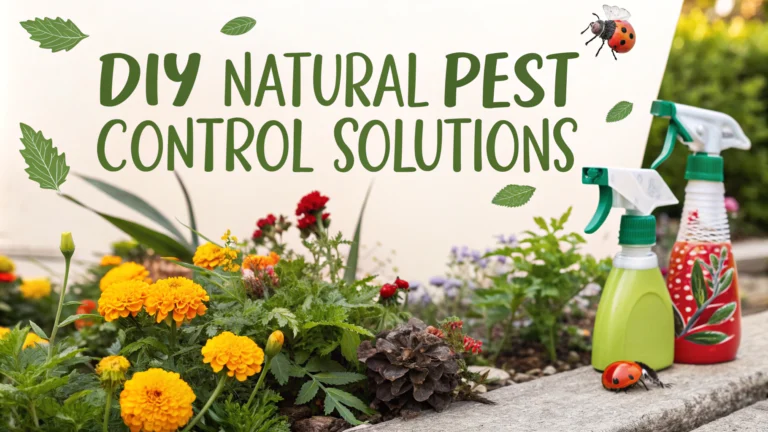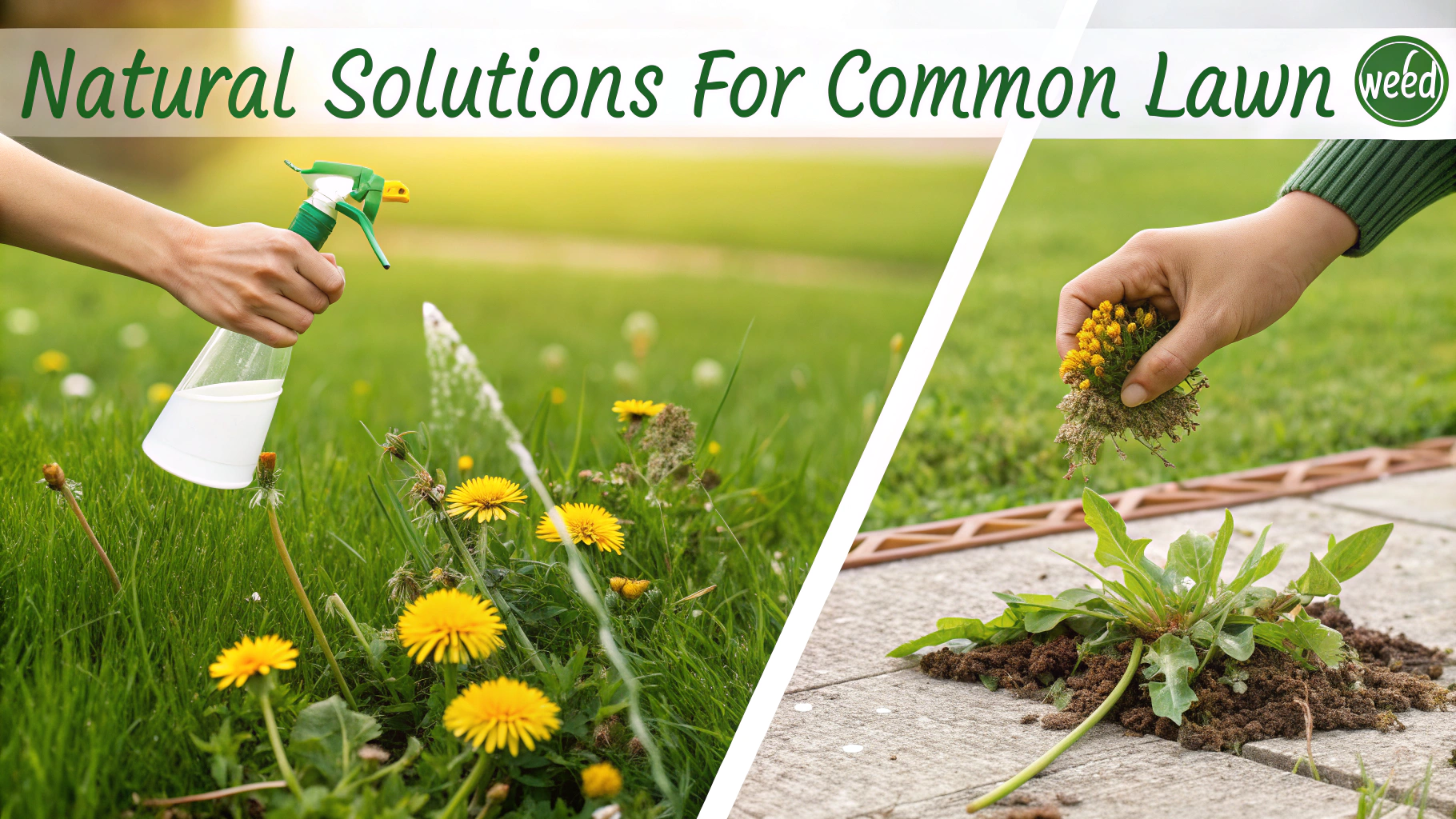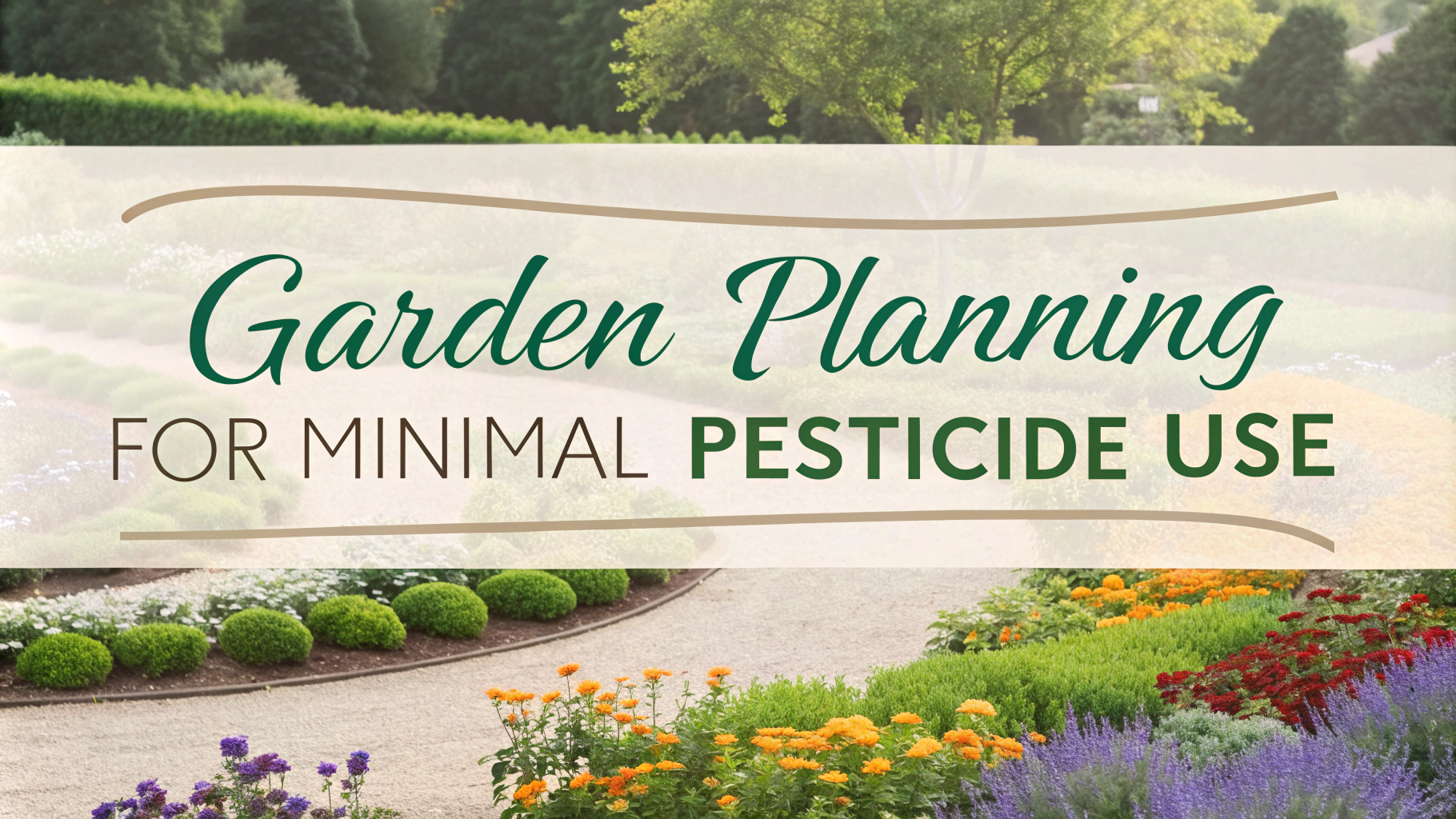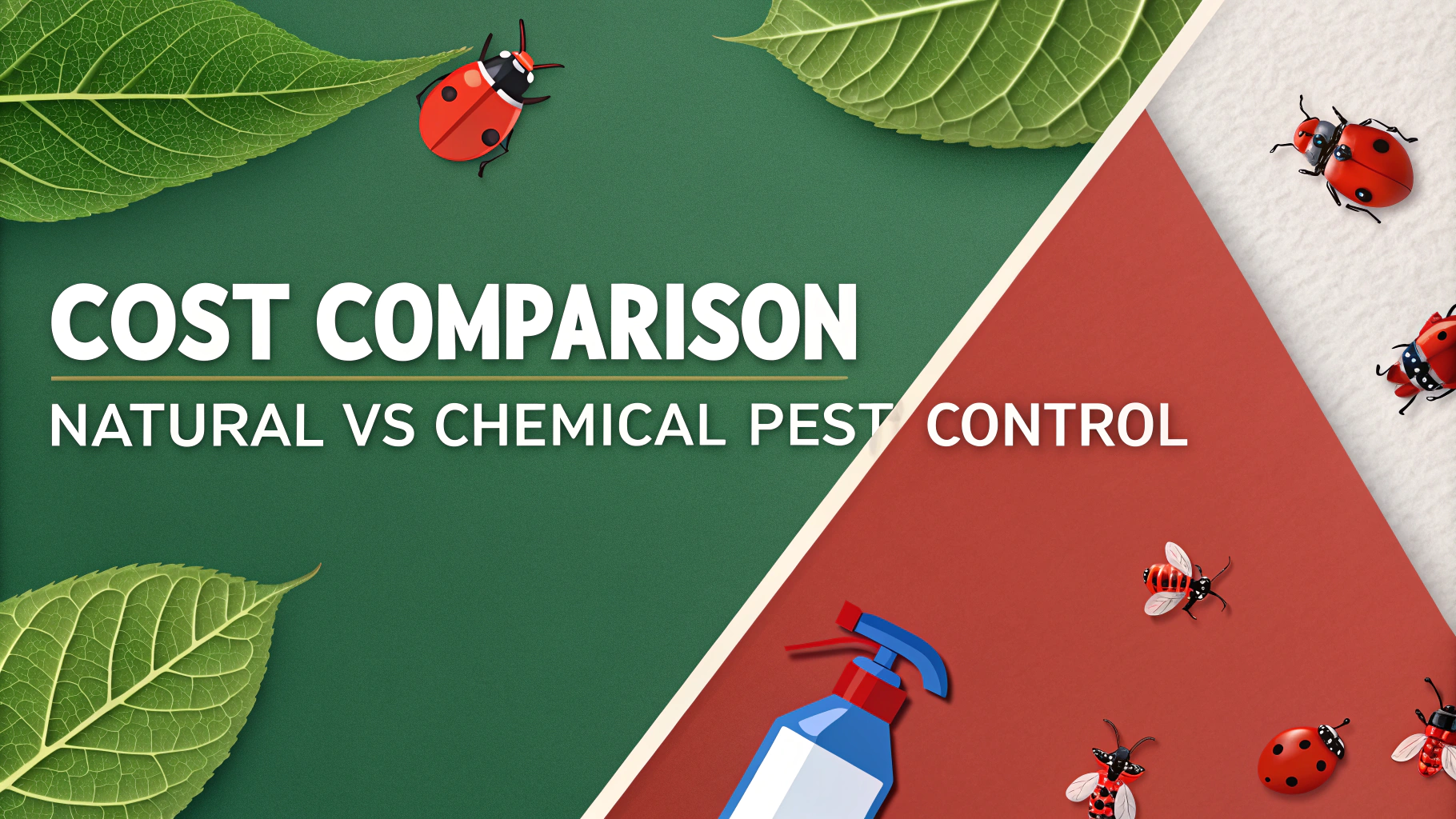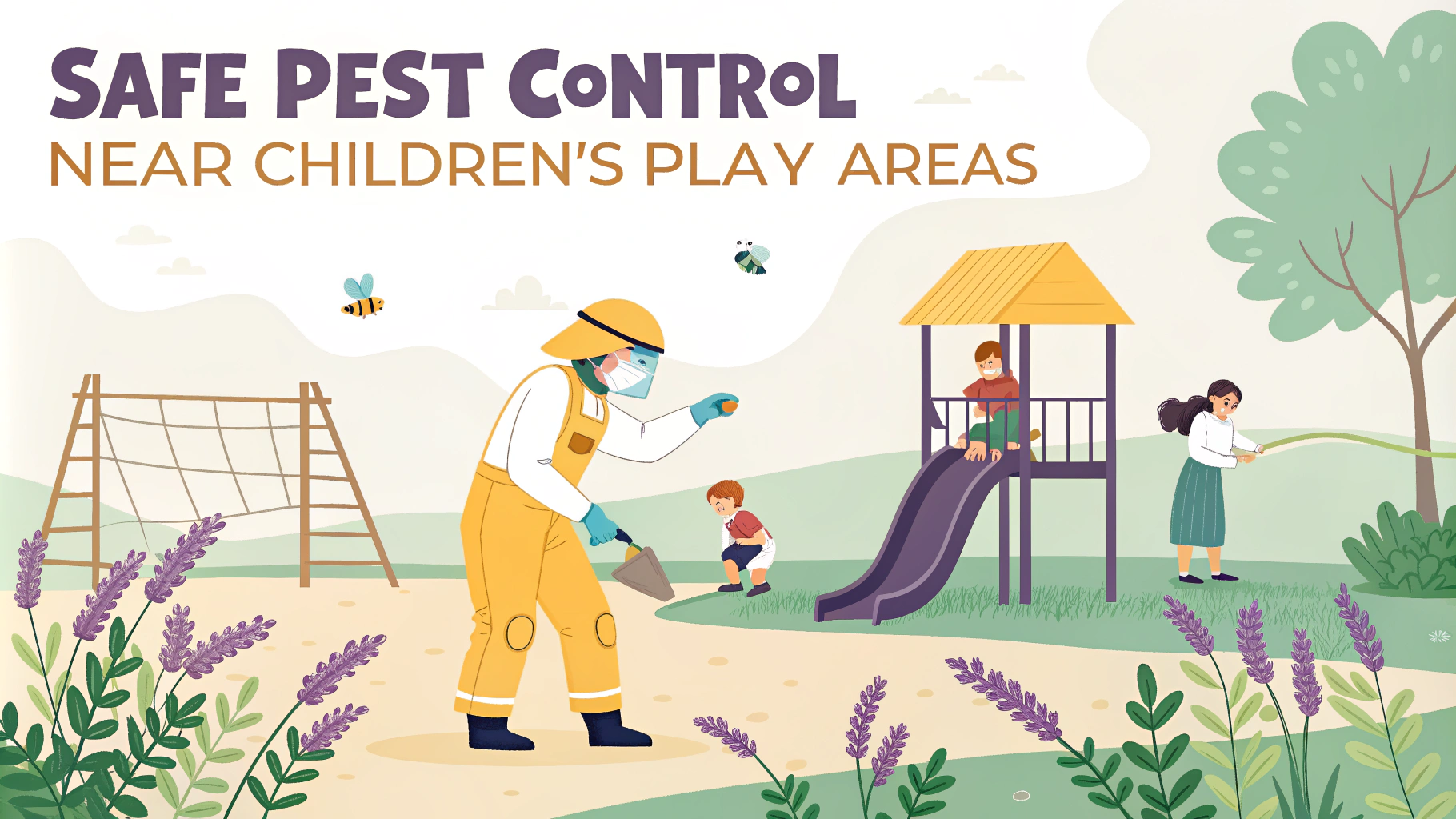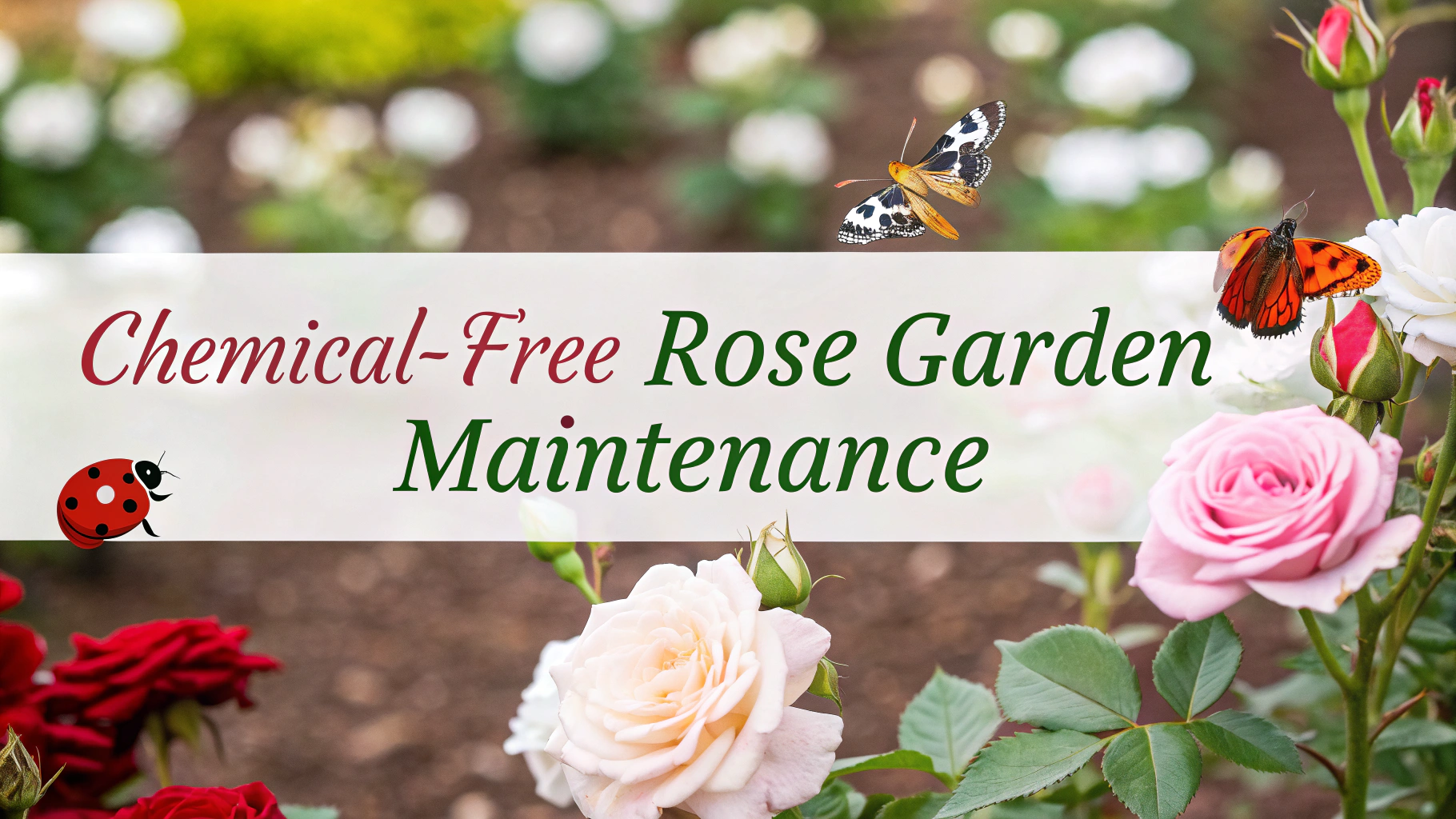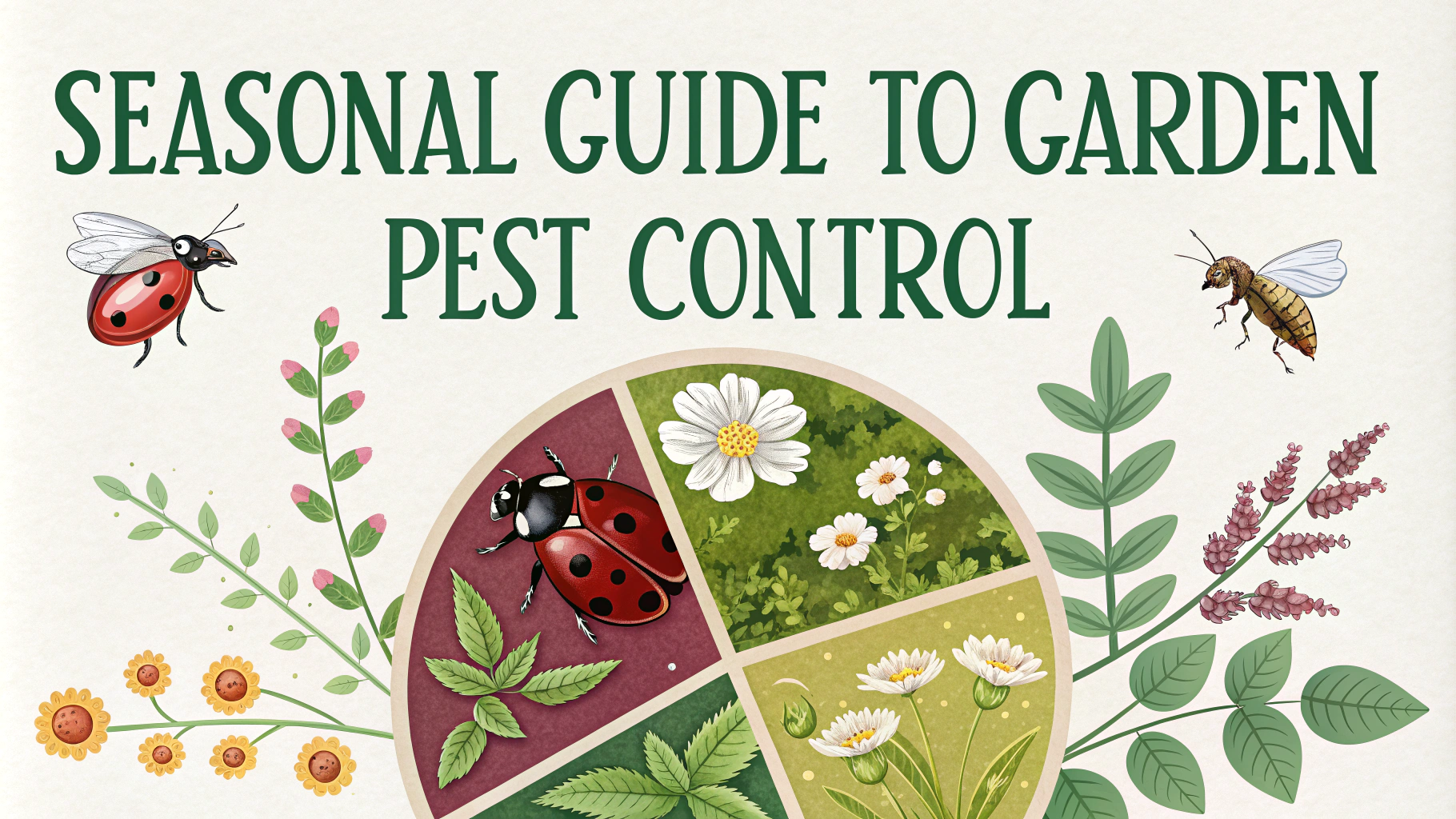Natural pest control offers safe, eco-friendly alternatives to chemical pesticides for managing unwanted insects and garden pests.
Simple Kitchen Ingredients for Pest Control
Mix equal parts vinegar and water in a spray bottle to repel ants, spiders, and other crawling insects.
Sprinkle diatomaceous earth around entry points and garden beds to eliminate crawling insects through dehydration.
Place cucumber slices near ant-prone areas, as ants strongly dislike their scent.
- Garlic spray: Blend 4-5 cloves with water, strain, and spray
- Citrus peels: Place around windows and entry points
- Coffee grounds: Scatter in garden beds to deter slugs
- Cayenne pepper: Sprinkle to keep small mammals away
Plant-Based Solutions
Plant marigolds, lavender, and chrysanthemums around your garden as natural pest deterrents.
| Plant | Repels |
|---|---|
| Basil | Flies, mosquitoes |
| Mint | Ants, mice |
| Rosemary | Moths, beetles |
| Citronella grass | Mosquitoes |
Physical Barriers and Traps
Install fine mesh screens on windows and doors to prevent flying insects from entering.
- Sticky traps near houseplants for fungus gnats
- Beer traps in shallow dishes for slugs
- Nylon stockings over fruits to prevent fruit flies
- Copper tape around planters to stop snails
Beneficial Insects
Attract ladybugs, praying mantises, and parasitic wasps to naturally control harmful garden pests.
Maintenance Tips
- Remove standing water to prevent mosquito breeding
- Seal cracks and entry points around your home
- Keep compost bins away from house
- Maintain proper garden spacing for airflow
- Regularly inspect plants for early signs of infestation
Contact your local extension office (find yours here) for region-specific pest control advice.
Emergency Natural Solutions
- For ant invasions: Create barriers with chalk or baby powder
- For fruit flies: Set apple cider vinegar traps with dish soap
- For spider mites: Use neem oil spray
- For aphids: Spray with diluted dish soap solution
Remember to test any homemade solutions on a small area first to prevent plant damage.
Best Practices for Application
Apply natural pest control solutions early morning or late evening when temperatures are cooler for maximum effectiveness.
Frequency Guidelines
- Kitchen ingredient sprays: Reapply every 3-4 days
- Diatomaceous earth: Refresh after rain
- Plant-based deterrents: Replace weekly
- Physical barriers: Check monthly for damage
Prevention Strategies
Implement crop rotation and companion planting to naturally deter pest populations from establishing.
- Clean garden tools regularly
- Remove diseased plants promptly
- Maintain healthy soil with compost
- Practice proper watering techniques
When to Seek Professional Help
Consider professional pest control services if infestations persist despite natural methods, especially for:
- Structural pest damage
- Large-scale infestations
- Protected or dangerous species
- Health-threatening pests
Conclusion
Natural pest control methods offer effective, environmentally responsible solutions for managing common garden and household pests. Success requires consistency, patience, and an integrated approach combining multiple strategies. Start with preventive measures, monitor regularly, and adjust methods based on results.
Document your pest control efforts and outcomes to develop an effective, customized approach for your specific situation. While natural solutions may take longer to show results than chemical alternatives, they provide sustainable, long-term pest management without harmful environmental impacts.
FAQs
- What are the most effective plants that naturally repel common garden pests?
Marigolds repel aphids and nematodes, lavender deters moths and flies, basil repels mosquitoes and flies, mint deters ants and mice, and chrysanthemums contain pyrethrum which repels roaches, ticks, and beetles. - How can I make a basic homemade insecticidal soap spray?
Mix 1 tablespoon of pure liquid castile soap with 1 quart of water. Spray directly on affected plants, focusing on the undersides of leaves where pests often hide. Reapply after rain or heavy dew. - Are diatomaceous earth applications safe around pets and children?
Food-grade diatomaceous earth is safe around pets and children when used as directed. However, avoid inhalation during application, wear a dust mask, and apply when air is still to prevent particles from becoming airborne. - How effective is vinegar as a natural pesticide?
White vinegar, diluted with equal parts water, is effective against many soft-bodied insects like aphids and mites. However, use caution as vinegar’s acidity can damage plant leaves if solution is too concentrated. - What natural methods work best for controlling garden ants?
Sprinkle coffee grounds, cinnamon, or food-grade diatomaceous earth around problem areas. Create barriers with chalk lines or citrus peels, and spray entry points with a mixture of water and peppermint essential oil. - How can I naturally prevent mosquitoes in my yard?
Eliminate standing water, plant mosquito-repelling plants like citronella grass and rosemary, install bat houses, and use cedar mulch in garden beds. Keep grass trimmed and maintain good air circulation. - What is neem oil and how should it be used safely?
Neem oil is a natural insecticide extracted from neem tree seeds. Mix 2 teaspoons of neem oil and 1 teaspoon of liquid soap with 1 quart of water. Apply in early morning or evening to avoid leaf burn, and reapply every 7-14 days. - Which beneficial insects should I attract to my garden for natural pest control?
Ladybugs control aphids, lacewings eat various soft-bodied insects, praying mantises consume multiple pest species, and parasitic wasps target caterpillars. Attract them by planting flowering herbs and maintaining diverse plantings. - How can I make a hot pepper spray to deter garden pests?
Blend 1 cup of hot peppers (like cayenne or jalapeño) with 1 quart of water and a tablespoon of liquid soap. Strain, dilute with water if needed, and spray on affected plants. Wear gloves and avoid contact with eyes. - What are the most effective companion planting combinations for pest control?
Plant tomatoes with basil to repel hornworms, carrots with onions to deter carrot flies, cucumbers with nasturtiums to control squash bugs, and cabbage with thyme to prevent cabbage worms.
